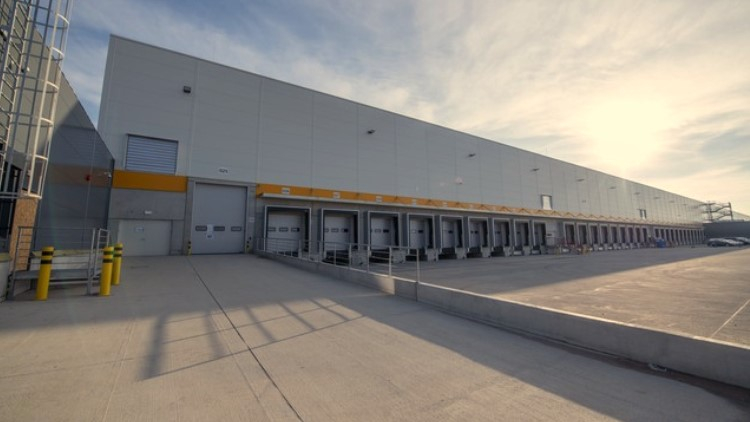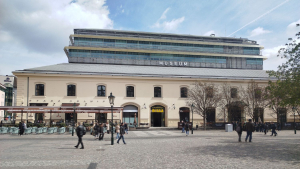
COVID-19 has had a great impact on the economy as well as consumers’ behaviour, which has naturally influenced the property market. Pandemic unexpectedly accelerated changes noticed for the last few years, such as the diminishing role of traditional shopping centres in favour of convenience retail, the boom of e-commerce market or working from home. According to Avison Young, investors have quickly accommodated to new conditions and even despite many uncertainties, investment volume has achieved third-highest level in the history – €5.3 billion.
Industrial market – COVID winner
The industrial sector was definitely the biggest beneficiary of the changes occurred in 2020. With ca. €2.6 billion transacted, industrial investments took up 50% of the total investment volume and outperformed almost 70% sector’s volume achieved the year before. Avison Young points out the new characteristic of 2020, which was a decrease in the number of single transactions. It was due to the tendency of purchasing portfolios or whole platforms, which took almost 60% of the sector’s volume. To the biggest transactions belonged a sale of Goodman logistic platform to GLP, Panattoni Portfolio purchase by Savills IM, Distribution Park Portfolio disposal by Hines to CGL and Ares’ Maximus Portfolio acquisition by GIC. All of them were financed by Asian capital, which confirmed the strong activity of the investors from this continent in the industrial sector. Disposals of city logistics schemes have also been noticed in the last year and this trend is expected to continue. This is a result of a rapid acceleration of e-commerce developments caused by COVID-19, which influenced investors’ sentiments, looking favourably at the last mile logistics, parcel delivery centres or Small Business Units.
Office market – core markets as safe havens
In the face of uncertain market conditions, many office investors turned to stable, core markets. Over 60% of €2 billion put in offices in 2020, fell on core or core+ properties located mostly in Warsaw. A few of such transactions started even before 2020. Not postponing them confirms investors’ attitude to choose low-risk strategies, according to Avison Young. Main transactions in regional cities regarded City One in Wrocław, bought by Uniqua, and the largest regional deal in 2020 - High 5ive II in Krakow, purchased by Credit Suisse. In Warsaw, investors focused on the Western part of the City Centre, where properties such as Generation Park Z, Lixa A&B, Chmielna 89 or Wola Center changed their owners. It is worth noticing that investors’ activity in Mokotów increased - five big deals worth almost €400 million in total has been signed, including the sale of D48 to IAD or DSV to Corum. It was almost four times more than in 2019, when four office buildings were sold for a total of ca. €100 million.
Retail market – convenience retail appreciated due to its resilience
Retail is the sector where the changes, already started a few years ago, were much accelerated in 2020. A tendency to shop in the vicinity of one’s place of residence and growing purchasing power of inhabitants of smaller towns have already popularized convenience retail. This, combined with the fact that the rules regarding the closure of retail properties did not affect them, has influenced the investors, looking favourably at this sector of retail. 22 of 35 retail transactions in 2020 regarded convenience retail. The biggest convenience retail transaction was a sale of Tyrion Portfolio, consisting of 5 convenience retail centres, where Avison Young represented the seller.
Prospective PRS
In 2020, investors entered PRS sector on a scale bigger than ever before. This was justified by choosing defensive strategies of investing in residential projects because of uncertain market conditions. In 2020 we saw a few joint-ventures or forward purchases. At the beginning of the year, TAG Immobilien acquired Polish developer Vantage Development and planned 24 residential projects with 8,600 flats for rent within 5 years. Also, a joint venture of Kajima and Tonsa to develop PRS project in Tricity was worth noticing. The other big deal was a forward purchase of an investment in a development stage located in Pulawska 186, Warsaw by Aurec Capital from Matexi. What is more, Corestate Capital and Bain Capital Credit entered the market by purchasing two development projects of student houses in Kraków and Gdańsk. The year ended with another forward purchase – Heimstaden Bostad with Eiffage Immobilier of two PRS projects located in Warsaw.
It is worth noticing that we do not count joint ventures and forward purchases as typical transactions and they are not considered in total investment volume. According to Avison Young research, PRS volume in 2020 amounted to ca. €250 million.
What`s next?
2020 changed the perspective of many investors by accelerating the evolution of their approach to the property market. This showed how flexible the market is and offers a diversified product, depending on the economic circumstances.
In the future, Avison Young forecasts increased investment activity due to unleashing the capital blocked in 2020. Because of uncertain market conditions, investors would rather choose properties characterized by the low level of risk, i.e. office and logistics schemes with long-term, secured income or retail parks. As the PRS market is still evolving, there the next players are expected to enter the market.
Avison Young estimates that there is currently €0.5 billion pending transactions with PSPA signed in the previous year. Therefore, we should expect a strong opening of 2021.



